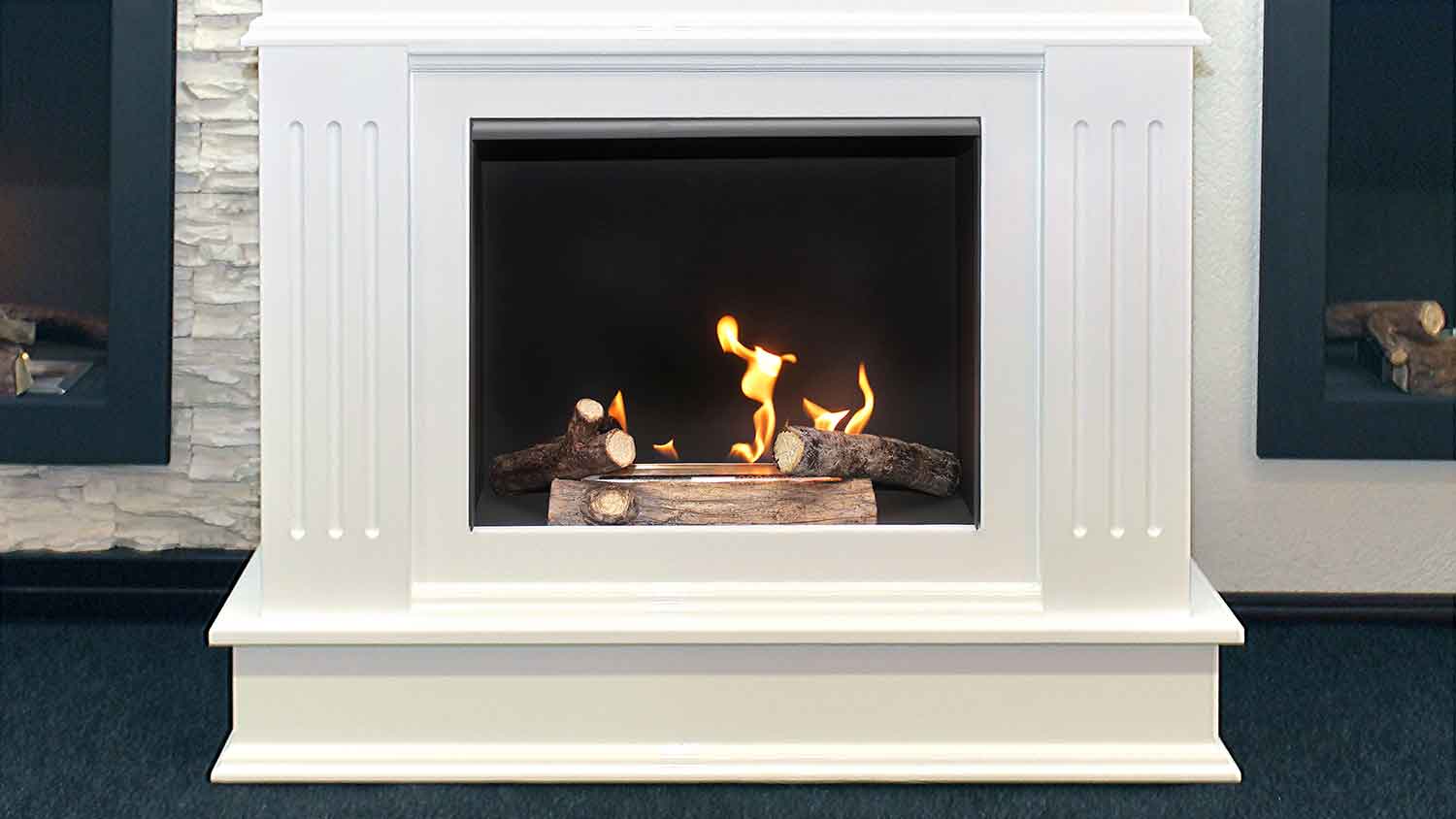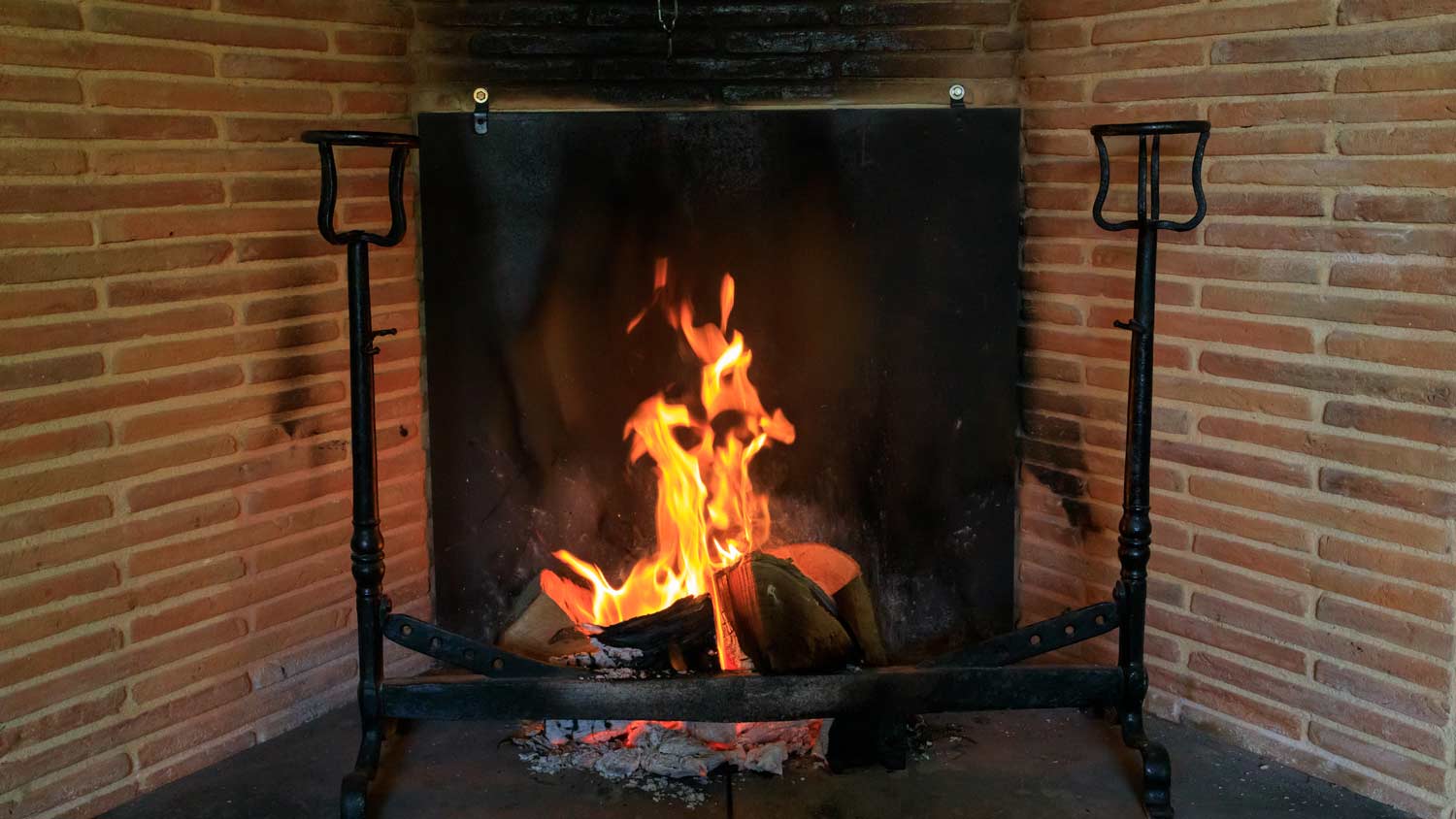Beware of Chimney Repairmen Full of Hot Air
Avoid expensive chimney-related scams and learn more about maintaining your home's chimney.


Gary Coffman of Greenwood, Ind., thought he'd saved $800 last fall when he hired a company calling itself The Chimney Guys to rebuild the chimney of his 1977 ranch home. Dialing the number on one of the fliers distributed in his neighborhood, Coffman was impressed by their presentation and price, $2,100, which surpassed that of two other companies quoting $2,900.
He trusted them when they faxed him a valid-looking insurance certificate. "These guys were slick," he says. "They had a professional website and the whole works." The job seemed well done, too, Coffman says.
But he filed a complaint with the Indiana Attorney General's office after the mason who did the work told him The Chimney Guys had never paid him and directed him to use the old fired-clay tiles that formed the flue instead of installing the new liner Coffman had purchased. "'He'll never know the difference,'" Coffman says the mason quoted his employer as saying.
According to the mason, The Chimney Guys hired him after he answered their ad seeking a mason on Craigslist. "[The mason's] name was Mark, but they told him, 'You have to be Phil, the name on the insurance certificate,' Coffman says. "I would never have known except they stiffed this Phil/Mark guy."
He says he learned the company address was bogus and their cellphone number stopped working soon after he called to complain about the mason's treatment. "I felt duped," Coffman says. "Just because somebody has a professional-looking website or says they're insured and sends a certificate doesn't mean it's not faked."
The Attorney General's office closed its complaint when it couldn't find the chimney company, says Molly Butters, AG spokeswoman. "This is likely a situation where the people running the operation are using different names and traveling to different areas to avoid getting caught," she says. "This is an excellent example of why it's important to hire someone you know has an established reputation."
Look for the right credentials
Fly-by-night operators sully the entire chimney sweep industry, even though professionals far outnumber scammers, says Ashley Eldridge, director of education for the Chimney Safety Institute of America, a Plainfield, Ind.-based nonprofit that is one of only a few organizations providing nationally recognized certification for the industry. The CSIA provides technical training and consumer information with the aim of preventing residential fires and carbon monoxide poisoning.
CSIA-accredited professionals have passed training classes and agree to adhere to a code of ethics. There are 12 chimney pros with up-to-date CSIA certification within 50 miles of downtown Indianapolis, though some highly rated sweeps may have allowed certification to lapse.
Eldridge says asking about certification is a good step in choosing a chimney pro, especially since Indiana doesn't require licensing. "Any knucklehead who wants to take advantage of people can buy a couple of brushes and paint his name on a van and call himself a chimney sweep," he says.
Eleven percent of Angie's List members responding to an online poll say they've had at least one negative experience with a chimney contractor and 2 percent say they've had nothing but bad experiences. Thirteen percent say they thought they'd paid too much for services or for services they didn't need.
Caution urged
Top-rated experts on Angie's List urge consumers to be wary of contractors who solicit door-to-door, luring customers with low-priced cleaning deals, then pressuring them into expensive services. "A few years ago, somebody in Carmel was knocking on doors, saying the fire department was requiring people to have their chimney swept," says Dennis Lamb, owner of highly rated The Mad Hatter in Indianapolis. "Some people were falling for it."
"There was a young couple in Fishers [Ind.] who was scared to death to use their fireplace," says Dave Clift, owner of highly rated Beck's Chimney Sweep in Noblesville, Ind. "Someone told them it was too dangerous to use unless they got expensive repairs. But there was nothing wrong. It took me an hour and a half and using my video equipment to educate them."
In the sole Angie's List report for a company called J B Construction, a Southport, Ind. resident who declined to be interviewed wrote that a knock on his door led him to hire the company for chimney work. "Once they got on the roof to check the chimney, they also found a hole next to our skylight. I hired them to fix the skylight and chimney and they indicated we needed a new roof, then siding. The list kept growing ... They wanted money almost every time," he wrote, until he'd spent about $40,000.
Not only did workers often fail to show up, they never provided a promised written warranty and a leak near the chimney remained, the homeowner reported. "That was the reason we hired them to begin with," he wrote. "I will use Angie's List from now on." Neither the company, nor Jay Eversol, whom the member listed as his contact, could be reached for comment.
In June, residents of Steinmeier Farms in northeast Indianapolis received fliers inaccurately claiming that Sure Clean Chimney & Masonry has an Angie's List A rating and earned a Super Service Award in 2004. The company — which never earned an SSA — is excluded from category and keyword searches for misusing the Angie's List brand.
Several times since 2005, Angie's List notified Sure Clean to stop the brand misuse. Angie's List eventually sued. Sure Clean didn't respond to the complaint and in September 2006 the Marion Superior Court awarded Angie's List $51,372.03 in damages that Sure Clean has yet to pay. Calls to Sure Clean for this article were not returned.
Best practices for consumers
As with hiring any contractor, it's best to receive multiple quotes before proceeding with work. Be wary of upfront prices that seem too good to be true, and don't let contractors pressure you into snap decisions. Lamb says a typical price for a basic sweep and visual inspection is $139. The price for a video inspection and sweep is just under $200, say Lamb and Clift.
Joe Sauter of highly rated Your Chimney Sweep in Speedway, Ind. recommends that homeowners hire chimney contractors who are insured and bonded. He has his insurance agent send prospective customers proof that he's covered for up to $1 million. Sauter's agent, Brian May of the highly rated May Insurance in Fishers, Ind., suggests customers validate insurance before service, and make sure their chimney contractors have at least $300,000 in coverage.
Sauter recommends asking for visual proof if a chimney pro proposes expensive repairs. "I carry a digital camera," Sauter says. "We click a picture of their work order and the outside of the house and the next picture is their chimney."
Besides careful hiring, don't neglect the importance of keeping your chimney in good shape. Chimney problems can lead to property loss, injuries and even deaths. Eldridge and other experts recommend hiring a reputable sweep to annually inspect and, if necessary, clean your chimney.
The importance of chimney maintenance
Angie's List member Susan Hanna of Indianapolis knows firsthand why a chimney flue may be out of sight but should never be out of mind. Seven years ago, tests revealed high levels of carbon monoxide in her husband's blood.
The source was traced to their chimney, which allowed water-heater exhaust to leak the odorless and potentially deadly gas through the fireplace, near Art Hanna's favorite chair. "They saved our lives," Susan says of The Mad Hatter, which replaced the chimney liner so exhaust exits their 1973 Castleton home. "We literally had no clue there was a problem."
The carbon monoxide levels weren't enough to sicken the Hannas — Art's blood test was for a separate issue — but chimney neglect or disrepair can cause fires as well as exhaust leaks. At least 697 chimney fires were reported in Indiana in 2010, says Alex Bowsher, spokesman for the Indiana Department of Homeland Security. For the first half of this year, 331 chimney flue fires were reported.
The numbers could be higher; Bowsher says local fire departments don't have to report statistics. Dirty chimneys - those with accumulated creosote, a tarry byproduct of wood-burning - played a role in 51 percent of chimney and fireplace fires in 2007, the most recent year for which statistics are available, says the National Fire Protection Association.
Capt. Rita Burris, spokeswoman for the Indianapolis Fire Department, blames creosote buildup for five or six chimney fires a year in Indianapolis. "Most people don't think about their chimney, but we encourage them to get it cleaned and to make necessary repairs," she says. "The most important thing is to get that creosote cleaned out."
However, many homeowners ignore or are unaware of the need for regular maintenance. An online poll of Angie's List members found 89 percent of 1,503 respondents have a chimney, but 56 percent have never hired a chimney professional. "Most people think that as long as the chimney's standing, everything is OK, but the interior is the important part," Eldridge says.
Hidden signs of disrepair
When Angie's List member Cathy Thuerbach hired Sauter to clean and inspect her Brownsburg chimney, his special chimney-scoping video camera helped her feel secure about his finding that a past chimney fire had cracked the clay-tile liner. Flue gaps can let smoke, exhaust and fire into the house. "We were just plain shocked," says Thuerbach, who had no idea there'd been a chimney fire.
Sauter's images helped document an insurance claim that provided $5,000 for a new stainless steel flue liner. Now, Thuerbach can relax and enjoy her fireplace. "If you ignore your chimney, you could lose your house," she says.
Angie's List member Julie Moeller of Broad Ripple hired Sauter this summer to deal with an odor she found almost unbearable on hot, humid days. His scope revealed more than creosote - the flue was cracked as well as too small to adequately vent the fireplace.
That's not unusual for a 1927 home, he says, but enlarging Moeller's chimney is cost-prohibitive because it's in the center of the house. Moeller says she's not sure what she'll do about the chimney, but at least Sauter's sweeping reduced the smell. Negative pressure is usually to blame for odors, Sauter says. "Houses tend to be tightly sealed, so air comes down the chimney," he says. "When houses were more leaky 20 or 30 years ago, odor wasn't a big deal."
Clift recommends burning a candle in a fireplace to reduce odor. "If that doesn't work, I would crack a window to change the pressure in the home," he says. "Sometimes just unlocking a window near the fireplace is enough." Moeller may wish all her chimney's problems were as easy to fix. "It's one of those unwelcome, unpleasant shocks," she says. "But it's better to know. I have two little children and don't like the thought of anything escaping into the home when we're burning a fire.
- additional reporting by Emily Udell





- How Often Do You Need to Clean Your Chimney?
- How to Tackle the 7 Most Common Chimney Problems
- Who Cleans Chimneys?
- 5 Reasons There’s Water Coming Down Your Chimney in Heavy Rain
- Do Metal Chimney Flues Need Cleaning?
- 9 Chimney Maintenance Tips to Ensure Every Winter’s a Cozy One
- Who to Call for Chimney Repairs
- How to Hire a Chimney Sweep
- How to Hire a Reputable Chimney Sweep That’ll “Soot” Your Needs
- How to Repair a Chimney: A Guide to 5 Common Problems and Their Solutions









